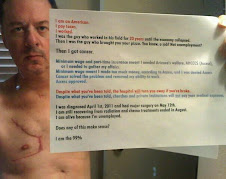The debate seems to be
intensifying over whether the U.S. minimum wage is too low, too high or
just right. But compared with the minimum wage in other countries, it’s
nearly the lowest in the developed world.
Earlier this
month, President Obama signed an executive order raising the minimum
hourly wage for new federal contractors from $7.25 to $10.10, fulfilling
a promise he made in his State of the Union speech to hike pay where he
could without the approval of Congress. That move affects a very small
percentage of people, but it could generate momentum for a broader
effort to do the same thing nationwide, as one bill pending in Congress
would do.
Even so, the U.S. minimum wage has fallen far behind what other countries pay. Data from the Organization for Economic Cooperation and Development shows the federal minimum wage of $7.25 per hour ranks 26th
out of 27 countries, when measured as a percentage of the average wage
in each of those countries. Canada, most European nations, and Asian
powerhouses such as Japan and South Korea all have a higher minimum
wage, relative to average pay. Here’s a chart showing the data for 2012,
the latest available,with the second bar from the right representing
the United States:
Minimum Wage as a Portion of the Average Wage

Source: OECD
On
a dollar basis, the U.S. minimum wage is slightly above average when
adjusted for differences in purchasing power among countries. That puts
the U.S minimum above the wage in Japan and Spain, plus less-developed
nations such as Poland and Turkey. But even by that measure, it’s still
below the minimum wage in Australia, the Netherlands, the U.K. and
several other countries.
No
matter how U.S. pay levels compare with those in other countries, the
minimum wage is a combative issue here at home, with advocates for
business arguing that raising the wage will threaten profits that are
already thin, leading many firms to hire fewer workers. The nonpartisan
Congressional Budget Office recently found
that raising the minimum wage to $10.10, as one Senate bill would do,
would lift 900,000 families out of poverty but also cost the economy
500,000 jobs. One pro-business TV commercial warns that raising the wage
will compel more businesses to replace human workers with tablet devices and other technology.
But
some economists feel the threat to the economy is overblown. “Arguments
that lifting the minimum wage will cost low-income workers their jobs
are significantly overstated,” writes Mark Zandi
of Moody’s Analytics. “While raising the minimum wage has probably
eliminated some jobs for very low-skilled workers, this loss has been
marginal.”
Outside of Washington, there’s less controversy over
the issue. About 20 states already have a minimum wage that’s above the
national average. Retailers such as Costco (COST), Whole Foods (WFM) and the Gap (GPS) have said they’ll set wages above the federal minimum, because it reduces employee turnover. Polls show that three-quarters of Americans favor raising the minimum wage. Even 43% percent of small-business owners — who, in theory would have the most to lose if the minimum wage went up — support hiking it.
A
big part of the problem with the U.S. minimum wage is that it’s not
indexed to inflation — the way Social Security is — so instead of rising
automatically as living costs go up, it requires an act of Congress
every few years to raise it. That generates repeated political tussles
such as the one brewing in Washington now. Ten U.S. states do index
their minimum wage to inflation, as do several other countries.
The
Senate bill, which Obama supports, would raise the minimum wage to
$10.10 in stages over two years, then link increases to the rate of
inflation, eliminating the need for future votes on the issue in
Congress. Most Congressional Republicans oppose the bill, but it could
still pass if a handful of Republicans join most Democrats in voting for
it.
Last year
Obama called for hiking the minimum wage to a mere $9 an hour, before he
signed on to the more aggressive Senate bill and signed the order
raising contractor pay. That suggests a possible compromise could emerge
on a nationwide minimum wage — at some level lower than $10.10 —
allowing Republicans to claim a modest victory.
Still, Congress is a place where national priorities go to die, so it’s also possible the United States could end up 27th out of 27 before long.
Rick Newman’s latest book is Rebounders: How Winners Pivot From Setback To Success. Follow him on Twitter: @rickjnewman.


























No comments:
Post a Comment